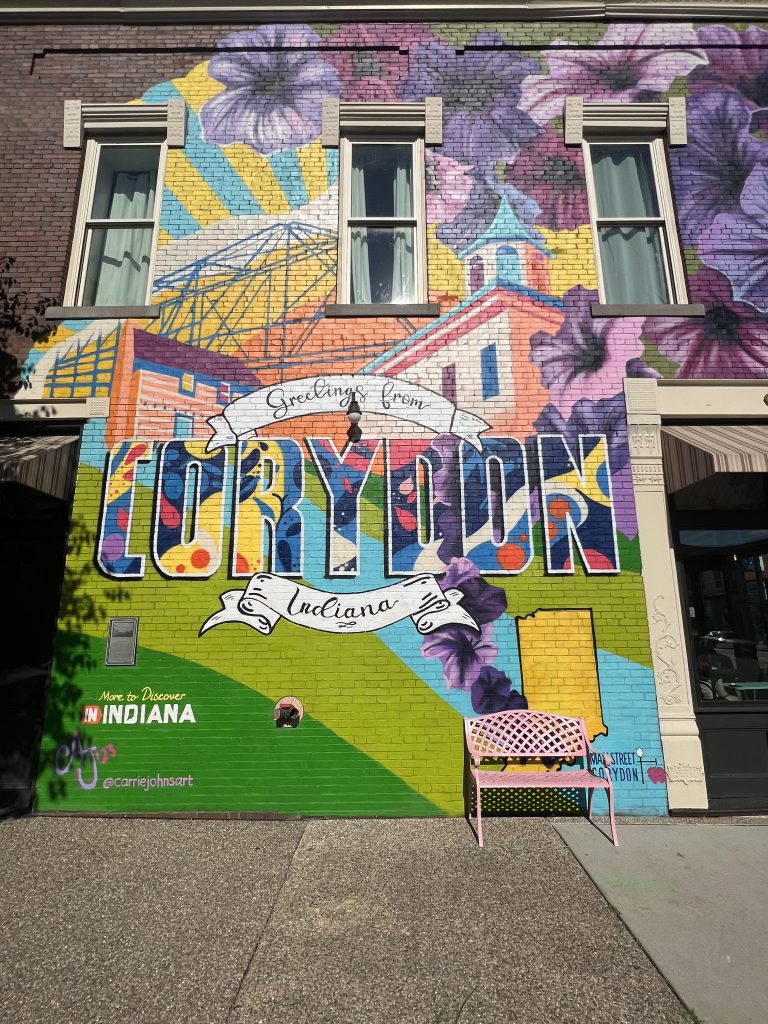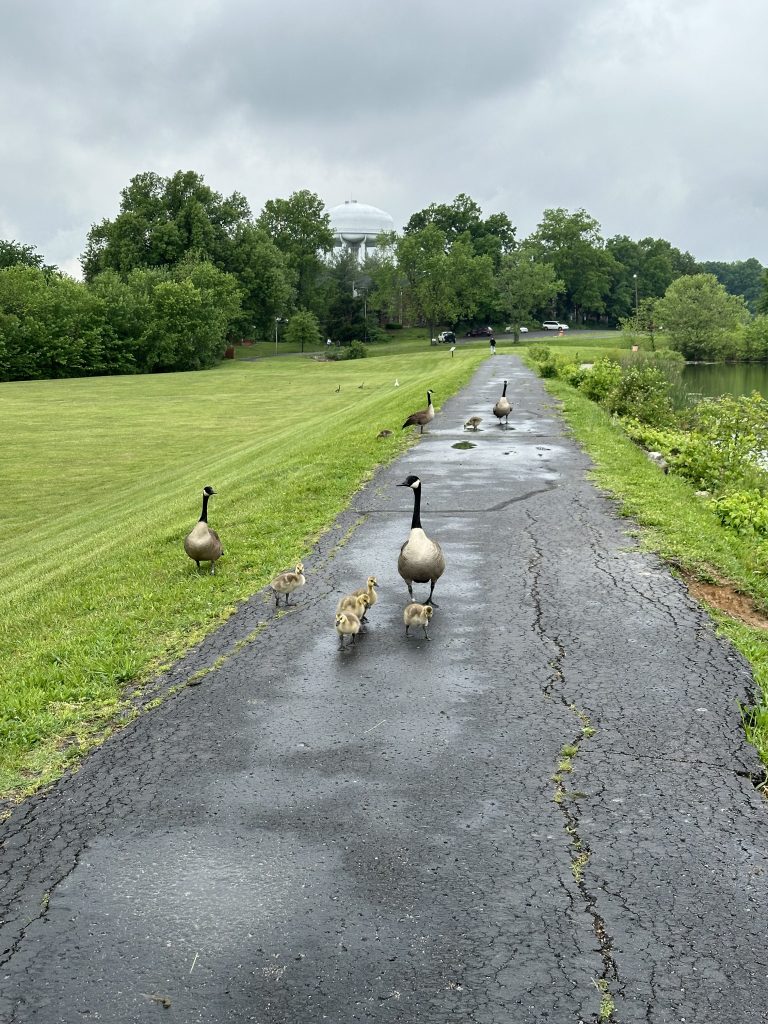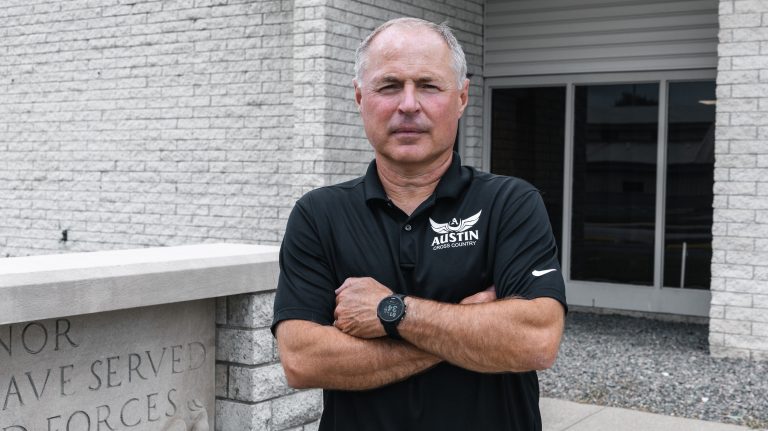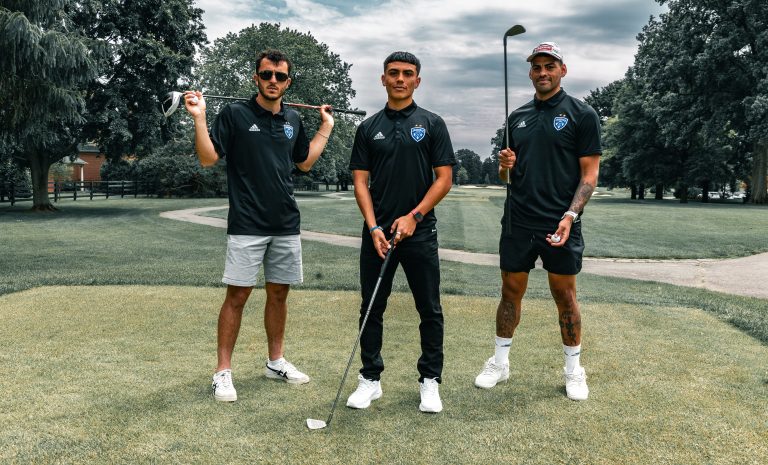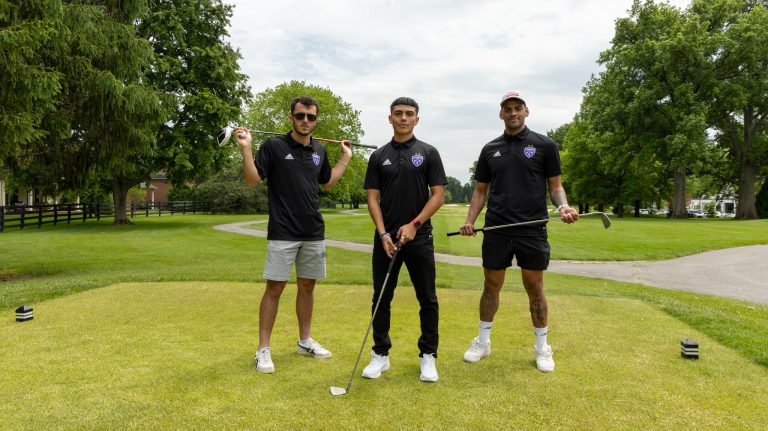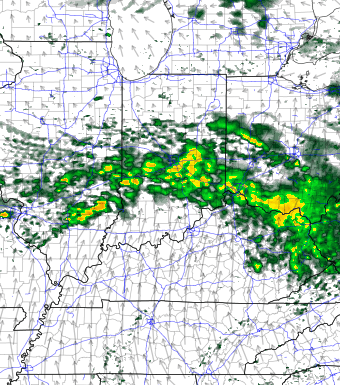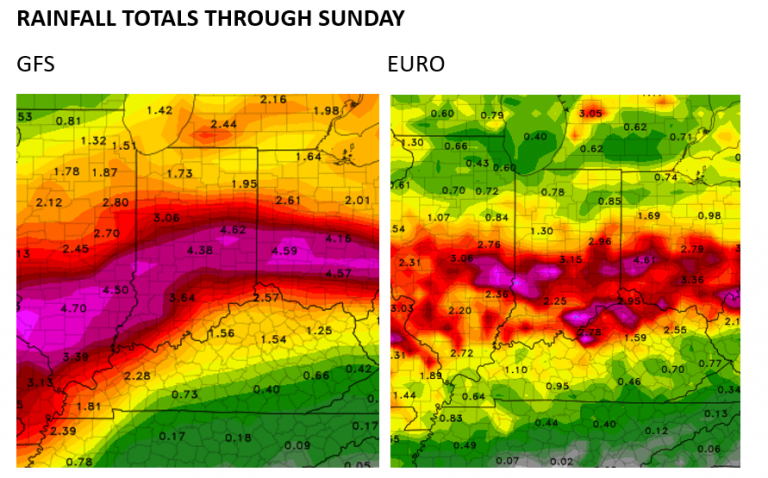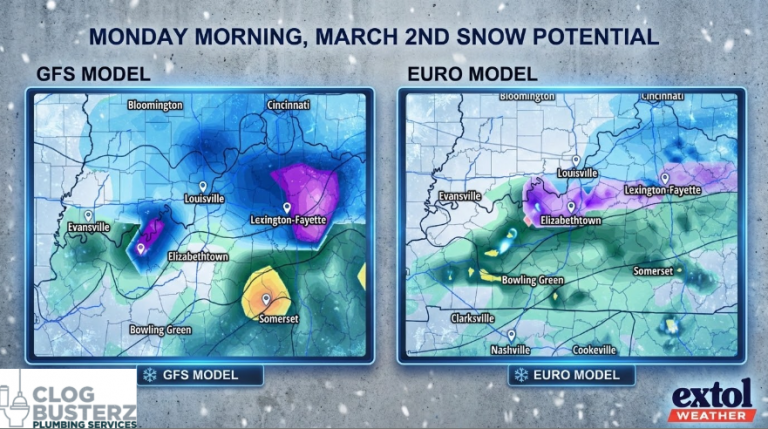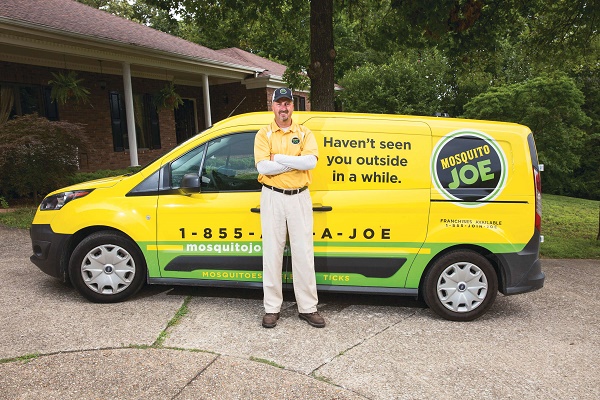
By Steve Kaufman | Photos by Tony Bennett
Tired of ruining your summer evenings? Who ya gonna call?
When somebody recommends Mosquito Joe to you, don’t go looking for the newest Caribbean bar in Southern Indiana.
This is one case where the company name really tells you what the company does. And in the long run, you’ll be happier. You can always get another rum punch. But imagine the pleasure of an evening out on your deck or in your yard or by the pool without swatting away the clouds of gnats or spending a sleepless night scratching mosquito bites.
Mosquito Joe is a national company, based in Virginia Beach, Va., that offers a pest-control service. But it’s as focused in its business as its name implies.
“We don’t hunt down every crawling insect on your property,” says Paul Huff, owner of the Mosquito Joe franchise in New Albany. “We don’t even go inside your house.”
 What he does do is locate all the places in your yard where mosquitoes congregate, breed, hide and lay their eggs. Mostly, it’s areas of standing water for laying eggs and the underside of foliage for hiding during the day.
What he does do is locate all the places in your yard where mosquitoes congregate, breed, hide and lay their eggs. Mostly, it’s areas of standing water for laying eggs and the underside of foliage for hiding during the day.
Most people know that collections of rainwater after a downpour are Club Med for mosquitoes. Beyond that, they may not know much – or many of their assumptions may be wrong.
“Rain puddles are only one type of breeding ground for mosquitoes,” says Huff. He then goes on to enumerate all the other places you might never have thought of – like gutters, downspouts, leaky air conditioning units and underneath wooden decks.
It doesn’t take much water to attract a pregnant mosquito. Huff says she can lay between 200 and 300 eggs in as little as two teaspoons of standing water.
What about places like swimming pools, hot tubs, rock gardens? Surprisingly not as bad, says Huff, because the water isn’t still. Mosquitoes require standing water to breed.
So why not just go out into your yard and spray a bunch of Raid? Because, says Huff, you’ll do a lot of auxiliary damage, as well. Like hurting the pollinators – the bees and butterflies – you don’t want to harm, besides leaving a lot of toxic mist in the air for your children and pets to inhale.
Mosquito Joe wants to limit its offensive to your mosquito, flea, tick and gnat population. So, says Huff, there are two types of treatments.
One is a synthetic barrier spray, a form of “pyrethrin,” an insecticide derived from a naturally occurring compound found in chrysanthemums. (The chemical is safe enough that it’s used in pet shampoos and even lice shampoos you might have had to use on your children’s scalps.)
Once it dries it’s entirely safe for children and pets, Huff says, but might be problematic for fruit and vegetable gardens or, say, fish ponds. In those cases, he says, an alternative treatment uses an all-natural solution comprised of mostly garlic that doesn’t kill the mosquitoes so much as it effectively repels them.
“Different customers have different yards and different needs,” says Huff, “and so we have a service for every situation.”
The synthetic spray lasts three weeks, the all-natural spray two weeks, so a follow-up program is instituted based on whichever treatment was applied. Every two or three weeks, the customer gets an automatic repeat visit to reapply the treatment. This usually goes on until late October. By the time the weather has reached the point where there are three or four days or nights of below 40 degrees, the mosquitoes are finished for the year.
A couple of other things Mosquito Joe knows about his prey that you might not. One, they’re not strong flyers – or, in the industry jargon, they’re “shrub hoppers.” So the treatment is applied only where there’s a density of foliage.
Two, they don’t much care for the hot sunlight. So they tend to hide on the underside of leaves until dusk, when it becomes cooler and darker – exactly the time, as you know, when you and your family decide it would be nice to have drinks on the patio or dinner on the deck and enjoy a summer evening. Huff wants to help you enjoy the evening without cursing, swatting or itching.
Huff opened the Mosquito Joe franchise in his New Albany hometown this spring, covering a 10-county region that extends west to Jasper, east to Madison, north to Seymour and south to the Ohio River.
“I always wanted to own a company bigger than myself,” says Huff, a New Albany native, “something that benefits my entire Southern Indiana community, where I grew up and where I lived my entire life.”
A baseball player with a biology degree from Indiana University Southeast, he spent several years with Laboratory Corp. of America and Healthland before going into the lawncare business about five years ago.
“I used to receive industry magazines, and one day I saw an article about Mosquito Joe,” he says. “I decided that would be it for me. I’d always wanted to own a company, something bigger than just myself, benefiting the community and providing a future for my three teenage daughters.”
The program begins with a $49 initial visit, evaluation and treatment. Follow-up treatments can run between $59 and $69, depending on the size and nature of the property.
“Our biggest thing is, we’ll work with the customer, carve out a program that works with anybody’s budget,” Huff says. “If they’ve been unable to go outside and enjoy their yard, I’ll do what I can to make it affordable for them.”
One of the things Huff offer is the company’s Share the MoJo program: For every new customer you refer, you get $25 off your next treatment, up to $500 per season. So if you provide enough referrals, you could almost be conquering your mosquito community with Joe’s money.
Mosquito Joe of Southern Indiana covers Clark, Crawford, Dubois, Floyd, Harrison, Jackson, Jefferson, Jennings, Scott and Washington counties. Huff can be reached at 812.227.5440 or on the website www.southern-indiana.mosquitojoe.com.









